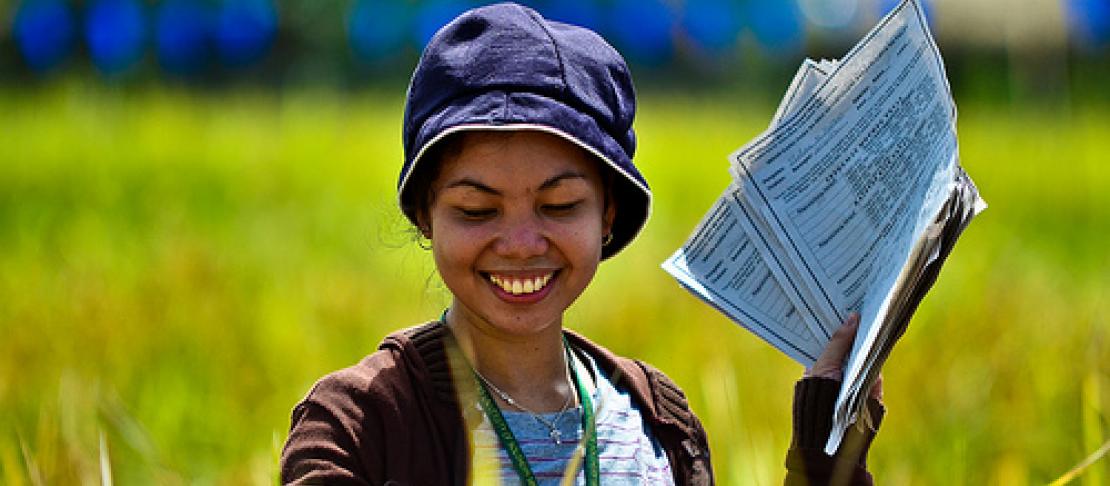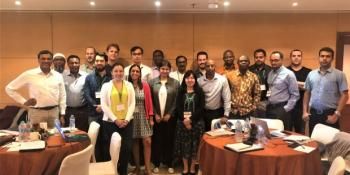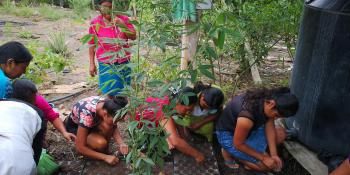Bangladesh study reveals strong relationship between education and climate adaptation

Farmers in Bangladesh have to adapt their livelihoods both to a changing environment and to changing markets. Our recent working paper "Understanding Adaptive Capacity: Sustainable Livelihoods and Food Security in Coastal Bangladesh" analysed the results of survey data from 980 households in coastal Bangladesh.
It was found that there were high levels of food insecurity, with 15 per cent of households reporting they faced food shortages for over half the year.
Market and economic reasons were more often given as reasons for changing agricultural practices than climate-related factors. 54 per cent of households gave yield and price as reasons for changing crops. Climate-related factors were also frequently mentioned. 25 per cent of households mentioned higher soil salinity and around 20 per cent pointed to increasing cyclones and floods.
Insights from the Sustainable Livelihoods Approach
The results supported the use of the Sustainable Livelihoods Approach (PDF) as a means of understanding adaptation to climate change. We found the least food secure households have the least adaptive capacity, and are making few, if any changes, in their agricultural practices. They have relatively few assets, and are producing fewer agricultural products. Natural capital like land, social capital such as education, and financial capital and assets all seemed to be important for food security.
One of the strongest relationships was between land ownership and food security. This is not surprising. None of the landless households said they had enough food for their families throughout the year. The least food-secure households appeared to be those who were forced to work on someone else's farm. Worryingly, climate change poses a threat to land availability in Bangladesh, as sea levels rise.
The data also supports the use of innovative technologies and information in climate change adaptation. Over 70 per cent of households owned a mobile phone, and a third had a radio, which may be increasingly important for farmers in accessing information about prices or forecasts for disasters, such as cyclones.
The survey showed the important role of women in agriculture in Bangladesh. Women were responsible for most of the work in raising small livestock like sheep, goats and ducks, and for livestock products such as milk and eggs. More than 60 per cent of households said that women did most of the work in processing agricultural products such as post-harvest work. Yet the important role of women is often not recognised.
Education, which is one element of social capital, also seemed to be an important predictor of innovation and adaptability. The majority of households that made more than 11 changes in their agricultural practices in the past 10 years had at least 1 household member with secondary or post-secondary education.
Diversification seemed to be a key strategy for reducing risks and increasing food security. In general, the farmers selling many different types of products had less months of food shortage. The relationship may also go two-ways where there are few safety nets, since food-insecure households are simply not in a position to adopt new agricultural strategies in response to climate or market changes: thus they are likely stuck in a type of poverty trap.
What does this mean?
The implications for policy-makers are that it is important to understand the whole vulnerability context that farmers are facing. For example, farmers are not only facing the dangers posed by climate change, but also rising oil and energy prices which may impact on their income.
The sustainable livelihoods approach may provide a useful framework for further research, or as a tool for developing indicators to measure successful adaptation to climate change. As international funds for adaptation become available, such information from farmers will be useful in developing strategies and options to reduce vulnerability, as the impacts of climate change gather pace.
Read more:
CCAFS Working Paper no. 32 - Understanding Adaptive Capacity: Sustainable Livelihoods and Food Security in Coastal Bangladesh by Wright, Helena, Kristjanson, Patti and Bhatta, Gopal.
Helena Wright is a PhD Researcher at the Centre for Environmental Policy, Imperial College London. You can read more about CCAFS research programs in South Asia here.



